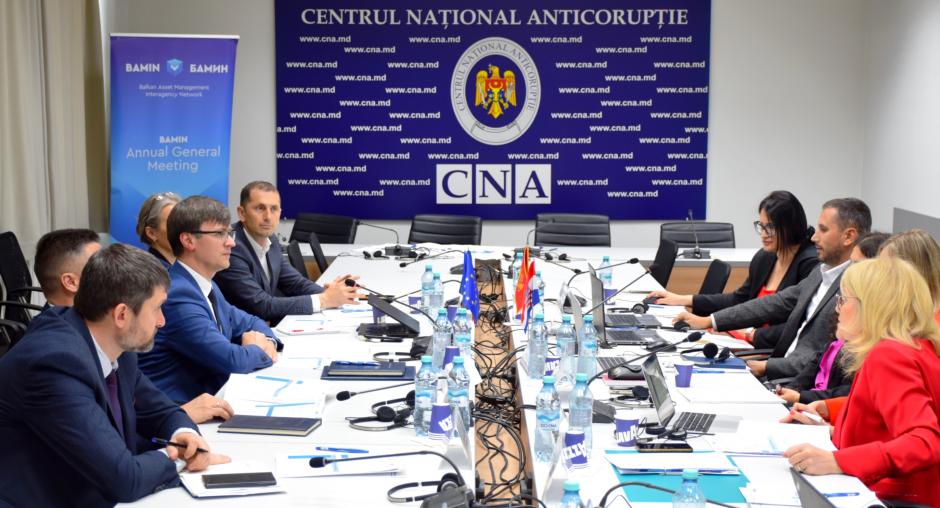Moldova takes over Presidency of OSCE-supported Balkan Asset Management Interagency Network

The Balkan Asset Management Interagency Network (BAMIN) held its first Steering Group Meeting of this year on 30 and 31 May 2023, in Chisinau, Moldova. During the meeting, the Moldovan National Anti-Corruption Centre’s Criminal Assets Recovery Agency took over the Presidency of the BAMIN, previously held by Montenegro’s Department of Confiscated Property Management within the Cadastre and State Property Administration.
The BAMIN Steering Group is the main decision-making body of the network and currently includes Croatia, Moldova and Montenegro.
The BAMIN is an informal network comprised of 21 asset management offices, with countries from South-Eastern Europe acting as full members and others as observers or associates. As the only informal network focusing on the challenges related to the cost-effective management of seized and confiscated criminal assets, good practices, and international standards, the Network is continuously expanding its membership and geographical coverage.
The Network offers training in areas identified by its members, such as the management of seized or confiscated vehicles or cryptocurrencies, peer mentoring of complex cases that involve assets located in multiple jurisdictions, and the development of manuals and other publications.
During the two-day meeting in Chisinau, the Steering Group discussed the Network’s membership, expansion and strategic direction for the upcoming five years. The group additionally explored future presidencies, co-operation with the Camden Asset Recovery Inter-Agency Network (CARIN) and upcoming activities.
The OSCE’s Transnational Threats Department (TNTD) and the Office of the Co-ordinator of OSCE Economic and Environmental Activities (OCEEA) support the BAMIN as part of a regional project “Strengthening Asset Recovery Efforts in the OSCE Region”. With an overarching approach to addressing the entire asset recovery cycle, the project supports participating States in making effective use of asset recovery provisions in the fight against organized crime and corruption. Italy, Germany and the United States of America financially support the project, currently implemented in South-Eastern Europe, while tailored activities in Moldova are under discussion with national stakeholders.
